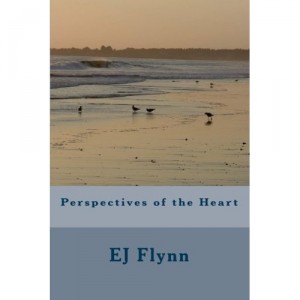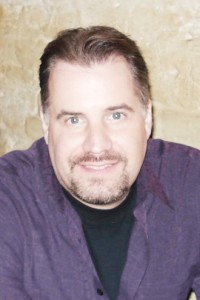The Worker Prince front cover
* * * * * * * *
Davi and Tela followed Dru, Brie and Nila, as they weaved along a trail through the trees. The wind whistled past Davi, russling his hair. The air was fresh and clean. He enjoyed the sensation, the blur of the trees as they passed, and their spicy smell.
Dru and Nila delighted in swapping places on either side of Brie—one zipping in front of her, the other behind. Sometimes, they cut it a little close, startling Brie, who cried out.
“Hey! Watch it!” She would shoot them scolding looks as they slid back alongside her, and then all three would break into giggles.
Ah, to be young, Davi thought. He exchanged a look with Tela, who chuckled and shook her head.
“Try not to damage the Skitters, okay?” Davi called after them. This just led to more laughter as Nila and Dru swapped places yet again.
“I don’t think they’re listening,” Tela said, her blue eyes glistening with amusement.
“You got that idea, did you?” Davi said as she chuckled. “So much for military discipline!”
Tela laughed. “We have kept things pretty loose. We’d better start tighten-ing things up.”
The comms on the Skitters beeped as a red light on the comm panel began flashing. They exchanged a look.
“The warning beacons,” Davi said.
Tela nodded. “Better call in and see what they’ve got.”
The brush behind them rustled and they heard a noise, turning back to see four LSP soldiers slip behind them on armed Skitters. Davi and Tela exchanged looks of alarm, accelerating toward the trainees as the LSP men fired their lasers and the cedars exploded around them.
“So much for our early warning system,” Tela groaned as they sped up to catch their trainees.
Hearing the explosions, Brie, Dru and Nila turned around to look as Tela and Davi pulled alongside.
“Don’t slow down! Go as fast as you can. Follow me!” Tela warned them. She pulled in front and they sped up to follow her.
Davi hung back to protect the rear, dodging fire from the LSP soldiers. All around, he heard laser blasts and explosions as LSP soldiers engaged the other trainees. The smell of burning wood and leaves thickened the air as Davi flicked on his comm-channel.
“Attention trainees: do not go back to base. Lose them, and then hide until we can rendezvous.”
His private channel beeped and he switched over, steering sharply to dodge another laser blast.
Tela’s voice came over the headphones. “Right about now, I’m wishing we had armed Skitters, too.”
Davi reached down to the side pocket and pulled out his blaster. “I’m going to try and lay down some counter fire, but my blaster won’t do much against their Skitter guns.”
“Can you keep them occupied while I go help the others?” Tela asked, drawing her own blaster from the side pocket of her Skitter.
Without answering, Davi turned and started firing back toward the LSP soldiers, who zigzagged to avoid his blasts. Davi slammed on the brakes, and the LSP soldiers zipped right past him, their faces registering surprise. He slipped back in behind them and began firing at their flanks.
Tela fired two blasts from her blaster, then she and the trainees sped away, as the soldiers dodged more bolts from Davi’s blaster.
Davi managed to land a couple of hits on one of the Skitters, sending sparks flying, but causing more fear in the rider than damage to the machine. As the rider and his companions leaned back to inspect his Skitter, Davi ducked off onto a side trail.
In a few moments, the LSP soldiers slid back onto his tail again. Davi accelerated to full speed, zigzagging in and out between trees, jumping over rocks, diving under overhangs—keeping his target profile as small as possible. The wind buffeted him every time he emerged from the trees, forcing him to work harder to stay on the Skitter. Then he rounded a bend to find more LSP soldiers who joined the chase.
Great! Are they all after me? He hoped Tela was helping the other trainees. He was too busy to help them himself.
Around another bend, Bordox and his aide joined the chase. Bordox. No wonder they’re all after me. Davi smiled, waving, as he dodged their fire. Outgunned, he searched his mind for a new tactic.
Bordox sped to the front of the LSP soldiers, close on Davi’s tail. Davi, looked back over his shoulder as Bordox growled: “In the name of the High Lord Councilor, I order you to stop! You’re under arrest!”
Davi braked and Bordox’s aide wound up in front of him. Bordox remained alongside, as Davi fired several shots with his blaster at the aide, leaning close enough to Bordox to yell: “Give my uncle my regards!”
He ducked off onto another side trail as Bordox shot on past, cursing.
The other LSP soldiers followed Davi as he followed the turns of the side trail, staying just out of range of their lasers. He shifted in his seat, trying to stay comfortable but his sweaty body and uniform made that difficult.
As he shot into a clearing, he discovered Tela, Jorek, Virun, and four others waiting for them, blasters held at the ready. Davi spun his Skitter into a one hundred and eighty degree spin and slid in alongside them, aiming his blaster as the first of the LSP soldiers came into view.
Davi’s group opened fire and chaos erupted. Two LSP Skitters collided as the soldiers tried to dodge the blaster fire. Another slammed into them from behind, while yet a fourth ducked to one side and crashed into a large cedar.
Davi and Tela motioned, accelerating on their Skitters onto another trail with their trainees close behind. All continued firing blasts back at the LSP men behind them.
Tela took three trainees with her and split off onto another trail as Davi, Jorek, Virun and two others continued on the present course.
“They’re after you?” Jorek yelled, sounding surprised.
Davi nodded. “I told you before; I’m on your side.” A laser blast exploded near them and Davi keyed the comm-channel button. “Try and get around behind them.”
Tela’s voice came over the radio. “Hang on, Davi, we’ve got a plan.”
A plan? Who’d had time to make a plan? Most of the LSP soldiers stayed behind Davi and his group.
“Make it hard for them to lock their weapons on us,” Davi said, as his group zigzagged in and out of the cedars in varied patterns, never leaving more than one of them on the trail at a time. Their skills impressed him. They had made a lot of progress.
Jorek and Virun slid to a stop amidst the trees, watching several LSP soldiers zoom past, then accelerated after them, firing their lasers.
Davi heard a rebel yell over the comm-channel. “You two be careful! They outnumber us!” Davi warned.
Jorek’s voice came back at him. “Best training exercise ever!”
“Don’t get cocky. This is not a game.”
“No problem, Captain. We can handle it,” Virun said.
Davi wondered if he’d heard right. None of them had ever called him Captain before.
Bordox and his aide pulled back into the lead behind Davi, firing blasts which exploded on either side of him. Too close for comfort!
Tela and her group shot out of the forest, firing at the LSP. Two more Skitters crashed and two others were damaged. The LSP soldiers slowed down and dissolved into chaos as they attempting to avoid fire from the lasers.
Another group of trainees shot out from a group of trees and surrounded them, firing.
“When did you have time to get all this organized?” Davi said into the comm-channel, as he glanced back at Tela.
“Quick thinking is a military necessity,” Tela said. “They were all issued blasters with their uniforms, so…”
Davi smiled. “You’ve never been more beautiful.”
He braked, sliding in between Bordox and his aide. As they passed him on either side, he swung a foot out and kicked at Bordox’s Skitter. Bordox struggled to regain control but flew off to one side, as Davi slipped in behind the aide and shot at his Skitter with the blaster.
Bordox pulled alongside him again, his face a fierce grimace. “You can’t escape this time, Rhii. We outnumber you,” he called out with his usual menacing grin.
“You’re losing men fast,” Davi said as Bordox reached over grabbing for his controls. Their Skitters banged into each other as Davi struggled to push him away. His sweat soaked gloves barely maintained their hold on the handlebars of the Skitter.
“I always knew you were a traitor,” Bordox said.
“I always knew you were a pompous blowhard,” Davi said, freeing his leg and kicking hard. Bordox frowned as he spun off to one side.
Tela zipped up, firing at Bordox as his aide and another LSP soldier slipped in behind Davi.
Bordox corrected his course and charged back toward Davi, dodging Tela’s blasts.
Davi slowed, sliding upward, as Bordox’s aide and the other soldier flew right underneath him. Distracted, both turned, crashing into each other as Davi dropped down to fire on them from behind.
Bordox headed straight for Davi, who rolled his Skitter, dove off and landed on his feet in the dirt. He aimed his blaster and fired at Bordox, forcing him to turn suddenly and crash his Skitter into Davi’s. The impact sent Bordox flying off into the cedars. Both Skitters sputtered and smoked, amid a field of debris.
* * * * * * *
You can see Bryan’s next Blog Tour stop on Monday, October 3rd, at SFSignal. You can also see my first interview with Bryan HERE. And you can follow him on Twitter as @BryanThomasS, where you can get updates on the entirety of his blog tour, or you can find the full list of upcoming visits on Bryan’s website.

















